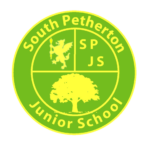Our School Offer for Music
Within the Purpose of Study for Music (National Curriculum 2014), ‘Music is a universal language that allows children to be creative and express their thoughts, views, feelings and ideas. Within the music curriculum, children acquire skills in playing, performing, improvising, composing, listening to and exploring how music is created.’
What do we mean by Music?
We aim to deliver a high-quality music education which engages and inspires pupils to develop a love of music and their talent as musicians. A good music curriculum will also enable pupils to increase their self-confidence, creativity and sense of achievement:
- perform, listen to, review and evaluate music across a range of historical periods, genres, styles and traditions, including the works of the great composers and musicians
- learn to sing and to use their voices, to create and compose music on their own and with others, have the opportunity to learn a musical instrument, use technology appropriately and have the opportunity to progress to the next level of musical excellence
- understand and explore how music is created, produced and communicated, including through the inter-related dimensions: pitch, duration, dynamics, tempo, timbre, texture, structure and appropriate musical notations.
How do we teach Music?
- Pupils participate in a weekly class lesson and attend a whole school singing session; this is taught by a Music specialist
- We teach a gradual development of musical skills from Year 3 to Year 6; we focus on:
– Controlling sounds through singing & playing
– Creating & developing musical ideas
– Responding & reviewing appraising skills
– Listening & applying knowledge & understanding
– Using & understanding staff & other musical notations
– Listening with concentration & understanding to a range of high-quality & recorded music
- We celebrate performance through high quality school events such as Harvest and Christingle and Year group productions; every child is included
How do we inspire a love of Music?
We believe that carefully planned opportunities will inspire pupils to develop a love of music, increase self-confidence and allow them to compose, listen to, discuss and enjoy many musical genres. Music is used across many curriculum areas (such as RE, English or RSHE) and during assemblies to encourage reflection and listening skills.
We offer children the opportunity to learn to play a musical instrument with individual and group lessons undertaken by peripatetic music teachers; this is at parents’ discretion and there are cost implications. We also add Music to our after-school provision eg. Choir, Recorder or Ukulele. All children are involved in a musical singing performance at Harvest & Christmas and the school offers two productions within the year – Year 3 & 4 within the Spring Term and Year 5 & 6 within the Summer term. We believe the sense of unity and achievement gained in creating these performances will create lifelong memories and skills for the children at our school.
How do we help children who find Music difficult?
During music lessons children are often supported by their peers when learning something new. Music, by its creative nature is subjective and allows children freedom to experiment in a safe and supportive environment. Children will be supported as needed by their class teachers and tasks differentiated to cater for both those who need support or extension.
How do we assess Music?
Music skills and performances will be assessed informally by the Music specialist. Future learning will be planned using these observations to ensure progression and development is best suited to learners’ needs



